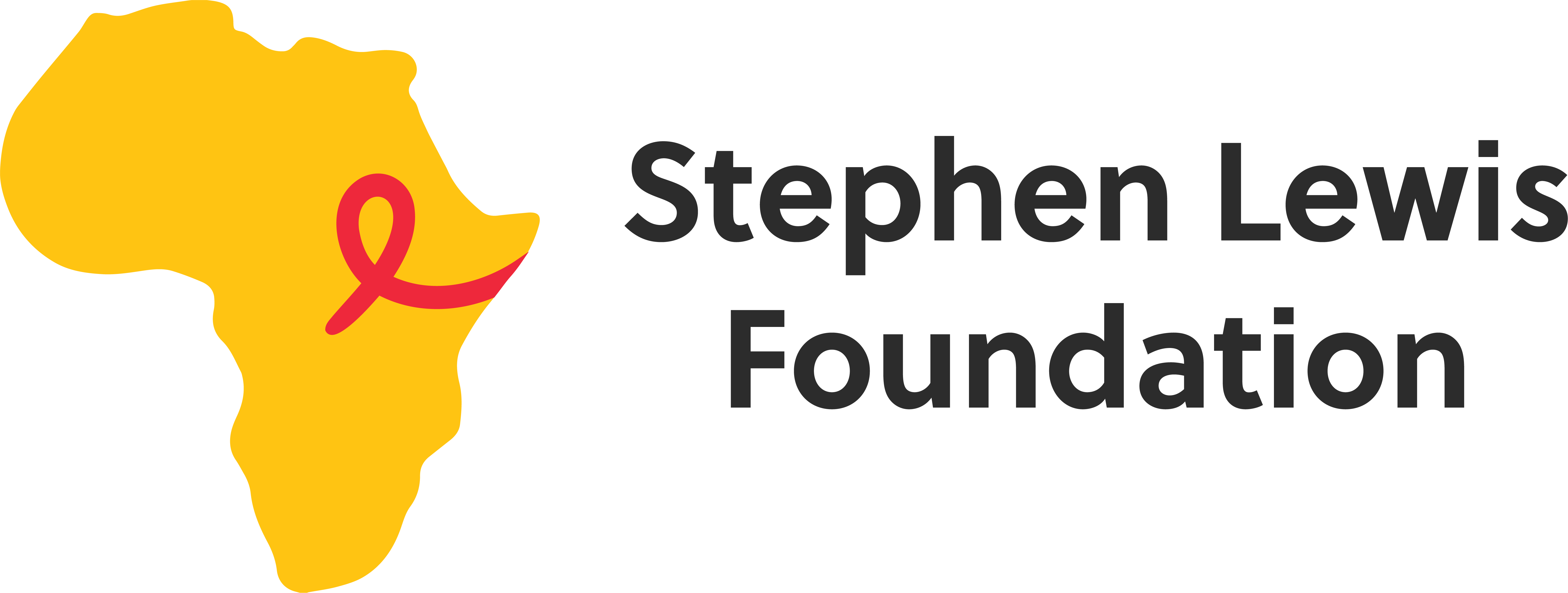International Women’s Day 2023
Photo Credit: Alexis MacDonald/SLF
Description: Grandmothers Gathering
Location: Tanzania
In recognition of International Women’s Day and the 20th anniversary of the Stephen Lewis Foundation, we are proud to celebrate the powerful women who have been a part of the struggle to end the HIV pandemic. Every day, young girls and women in sub-Saharan Africa confront the gendered nature of the pandemic, one that leaves them twice as likely as their male peers to be living with HIV – yet they have held their communities together and continued the fight for a future free from AIDS. Read about some of the women driving change, and learn how together we can ensure power and dignity for all women.
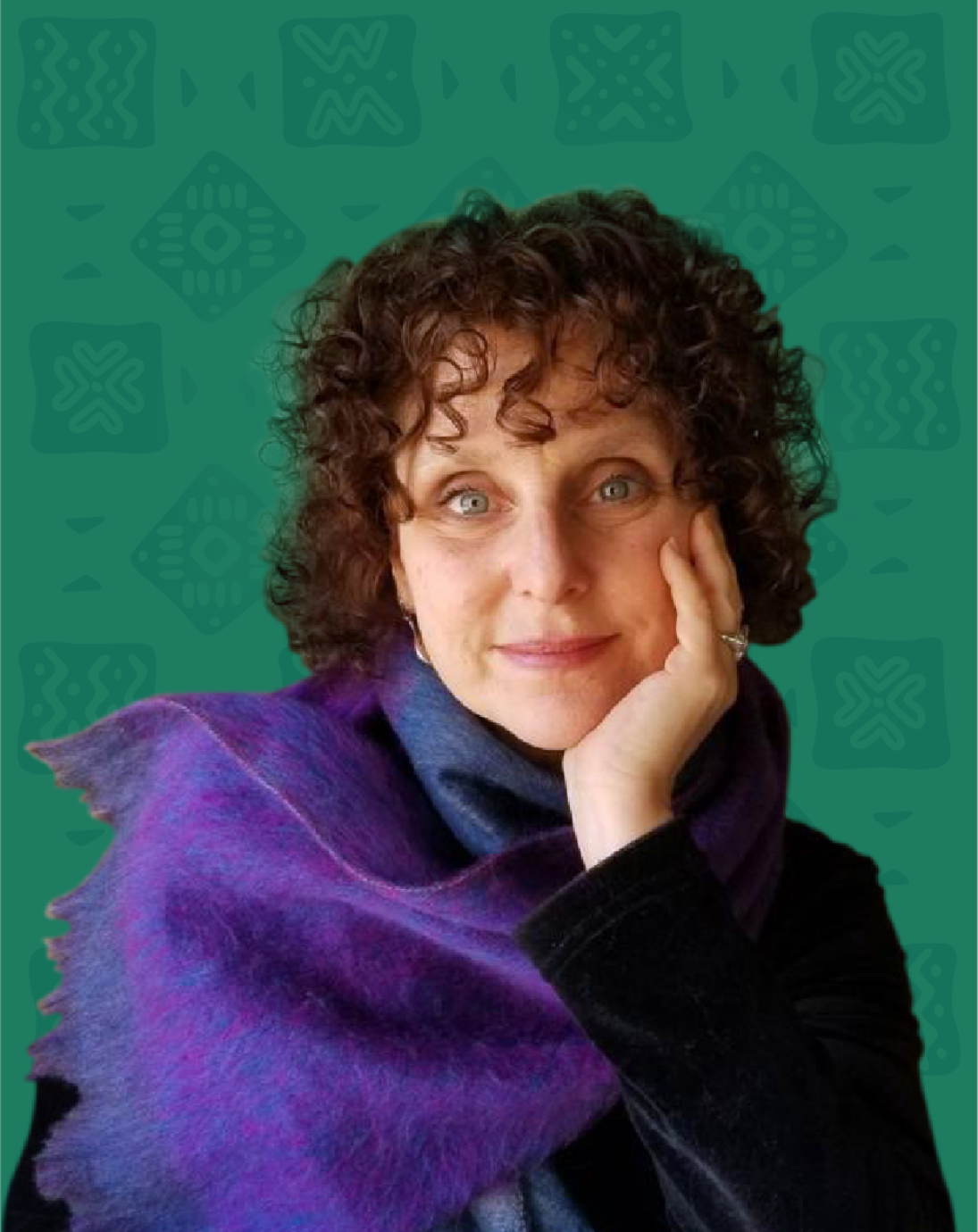
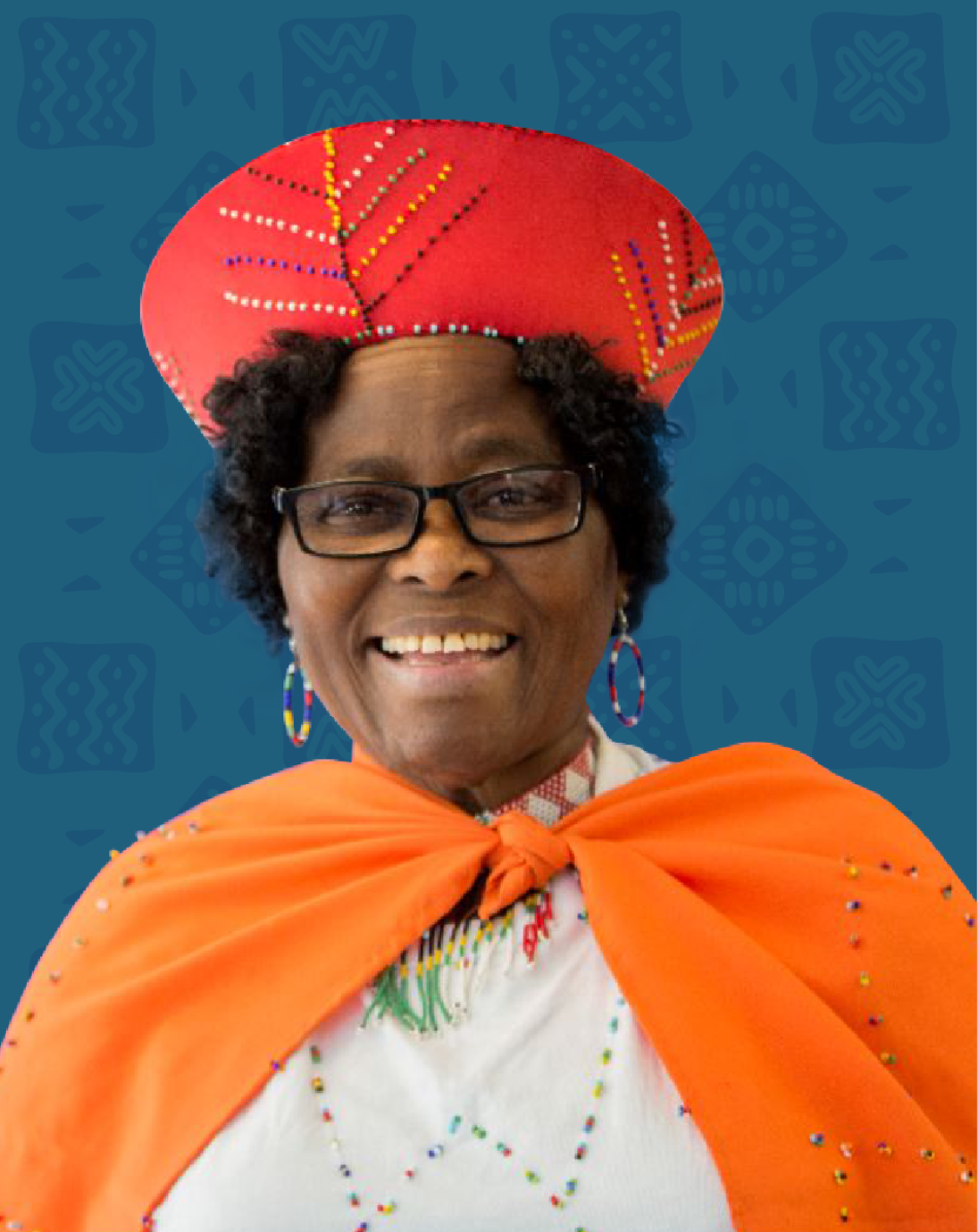
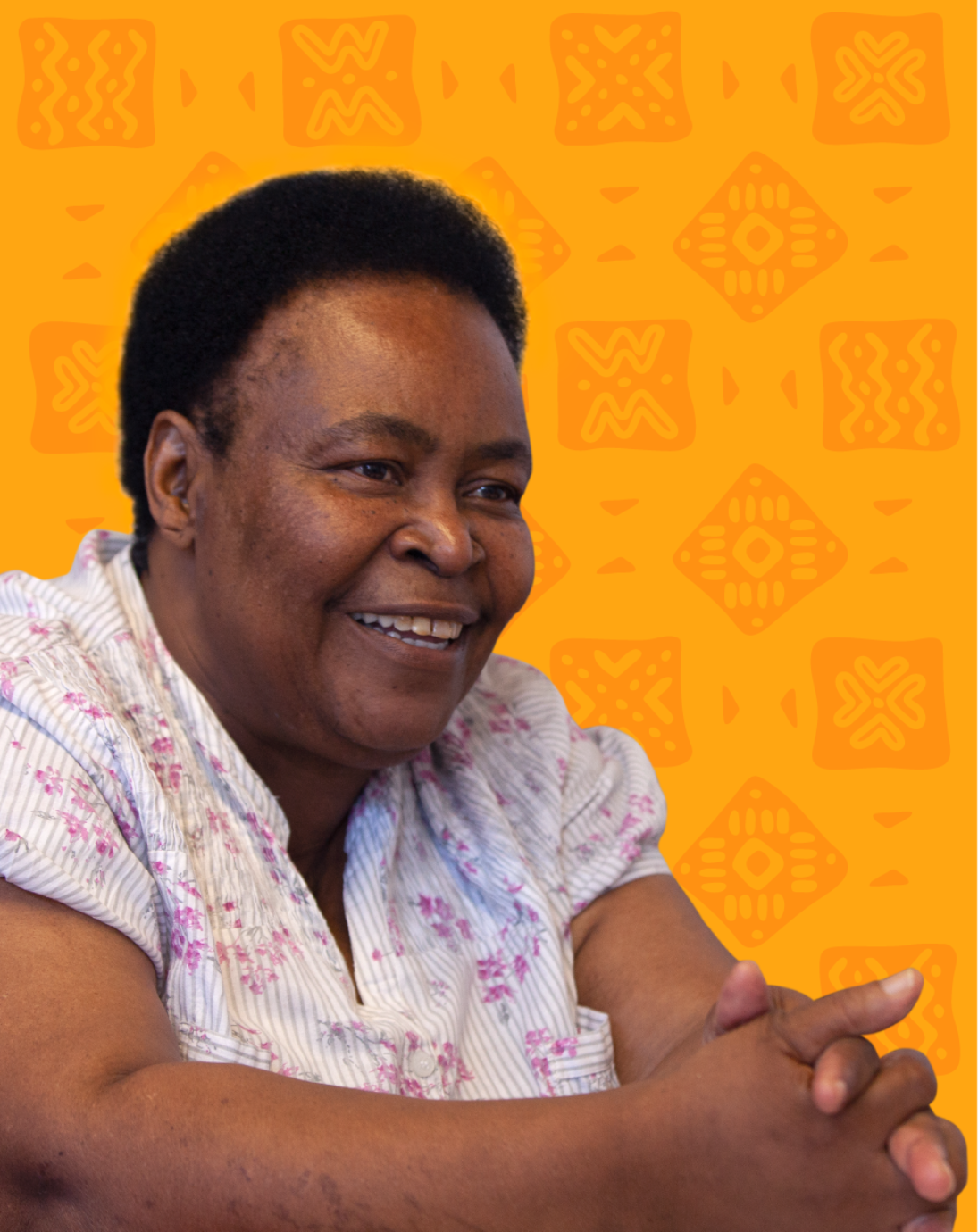
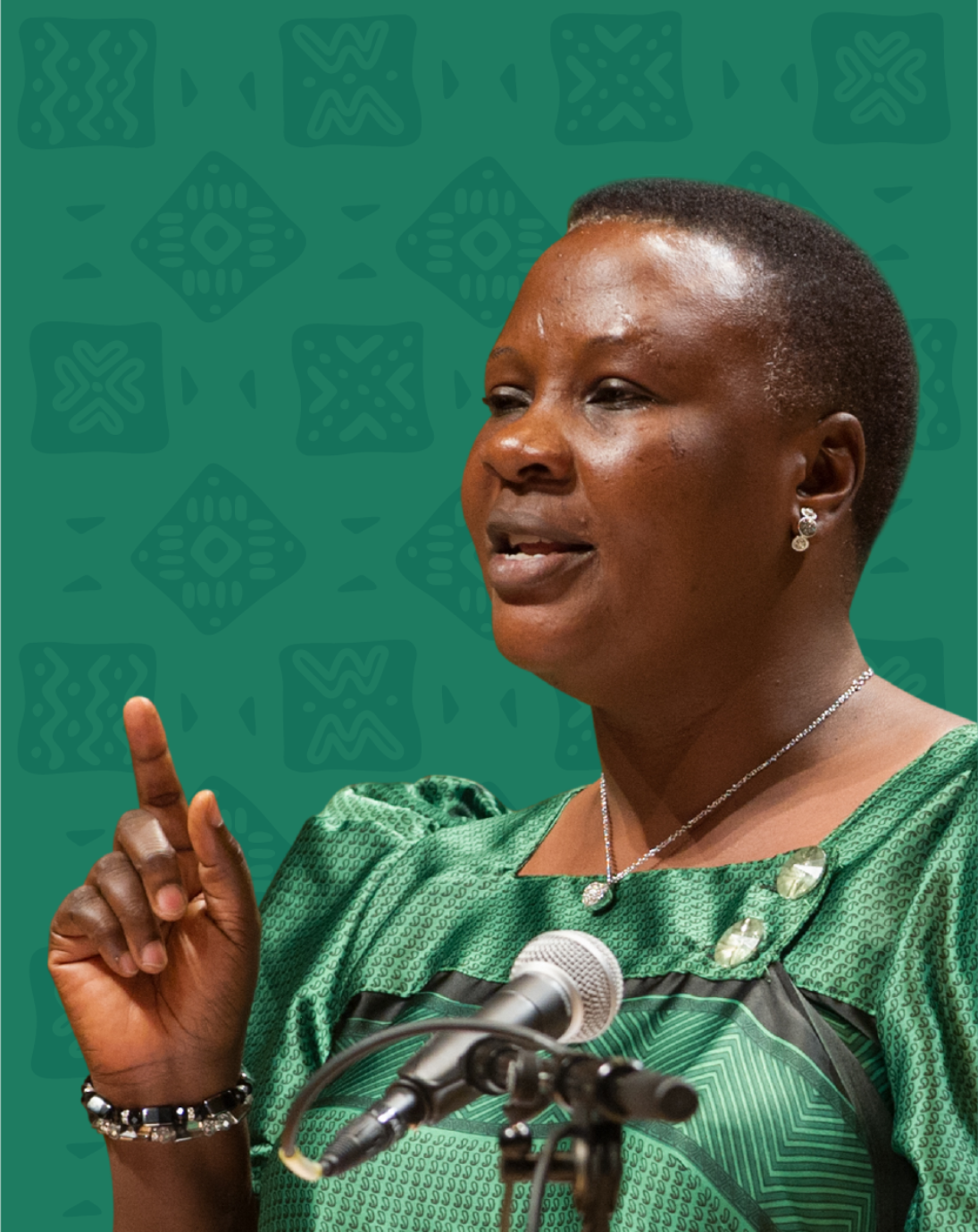
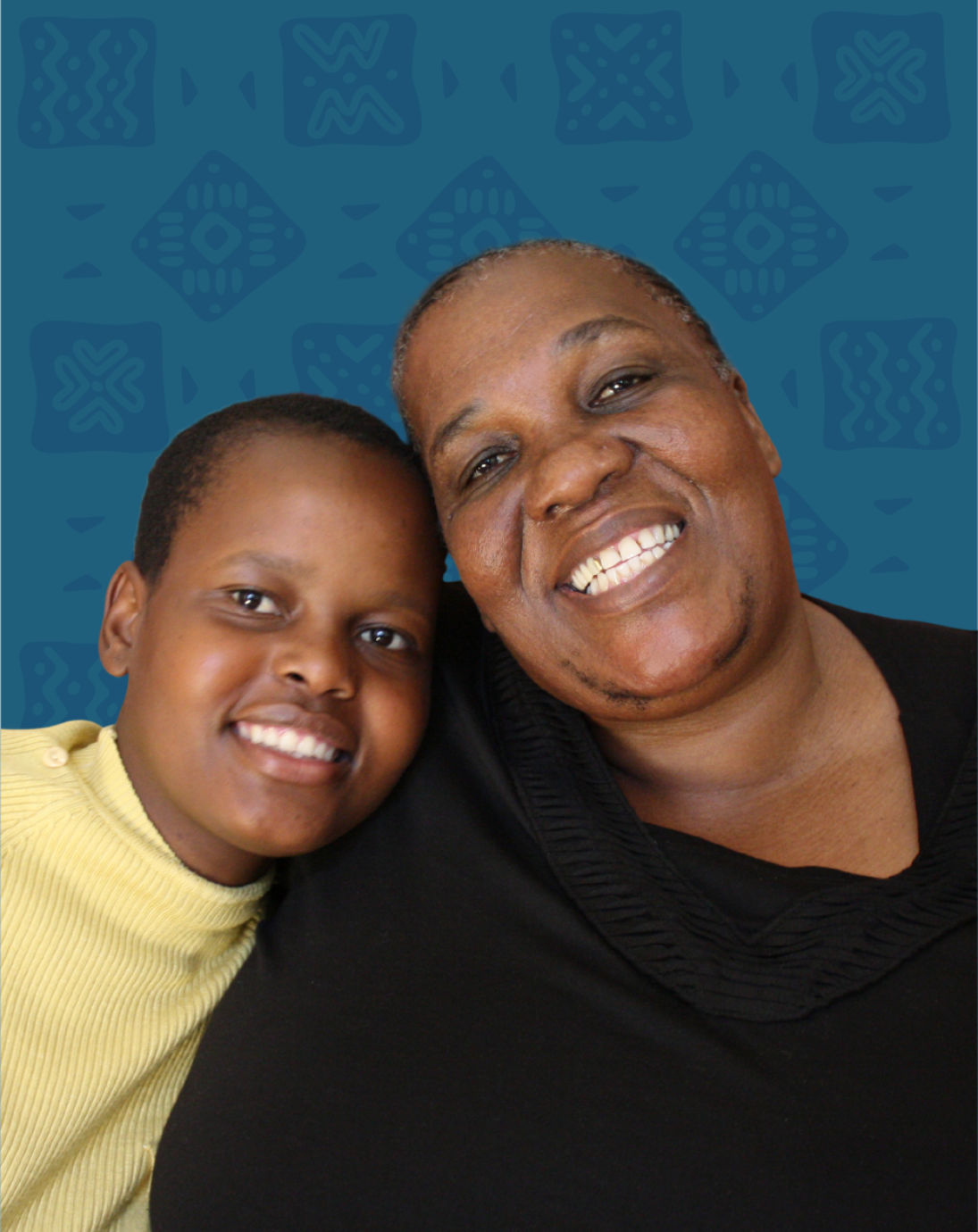
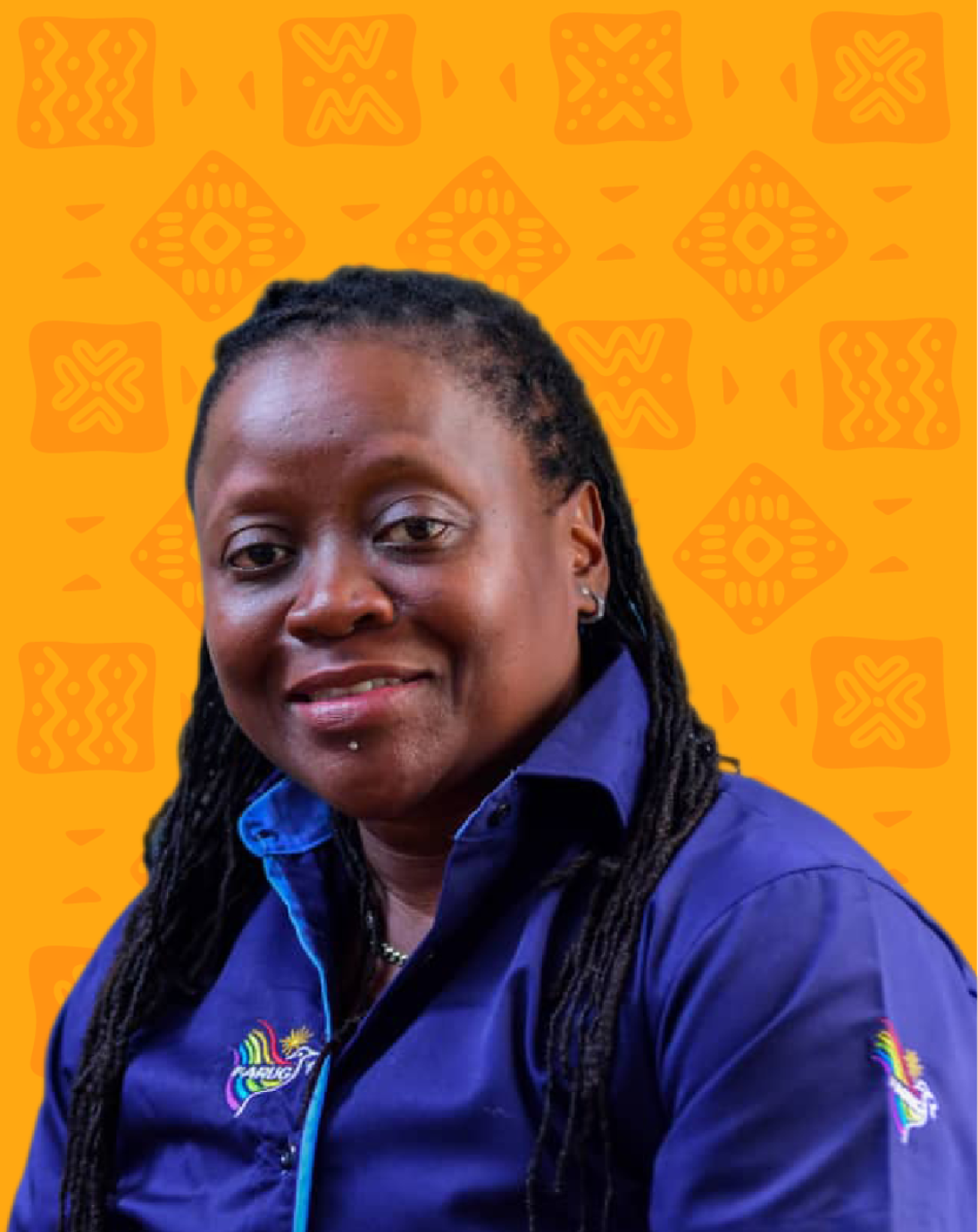
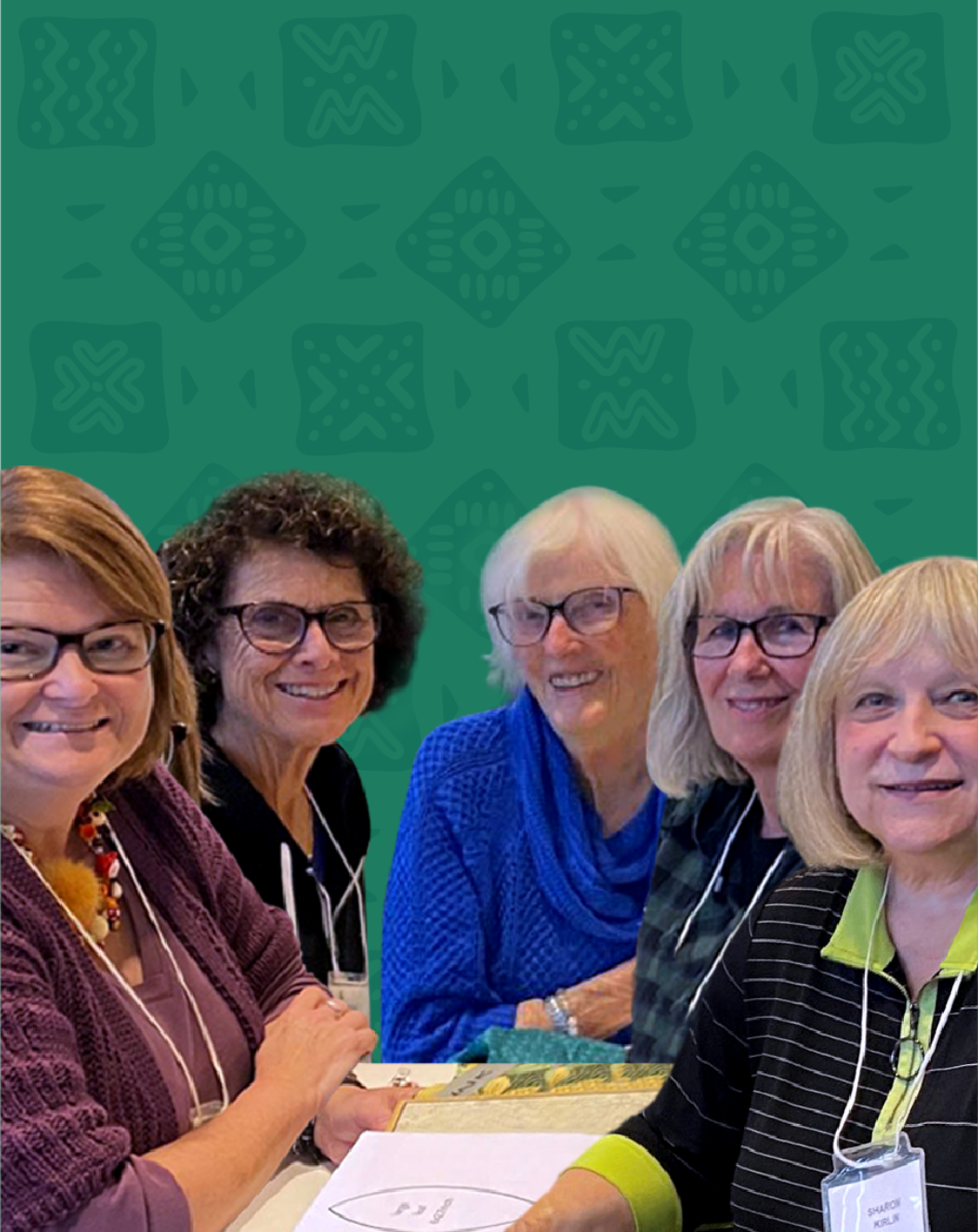
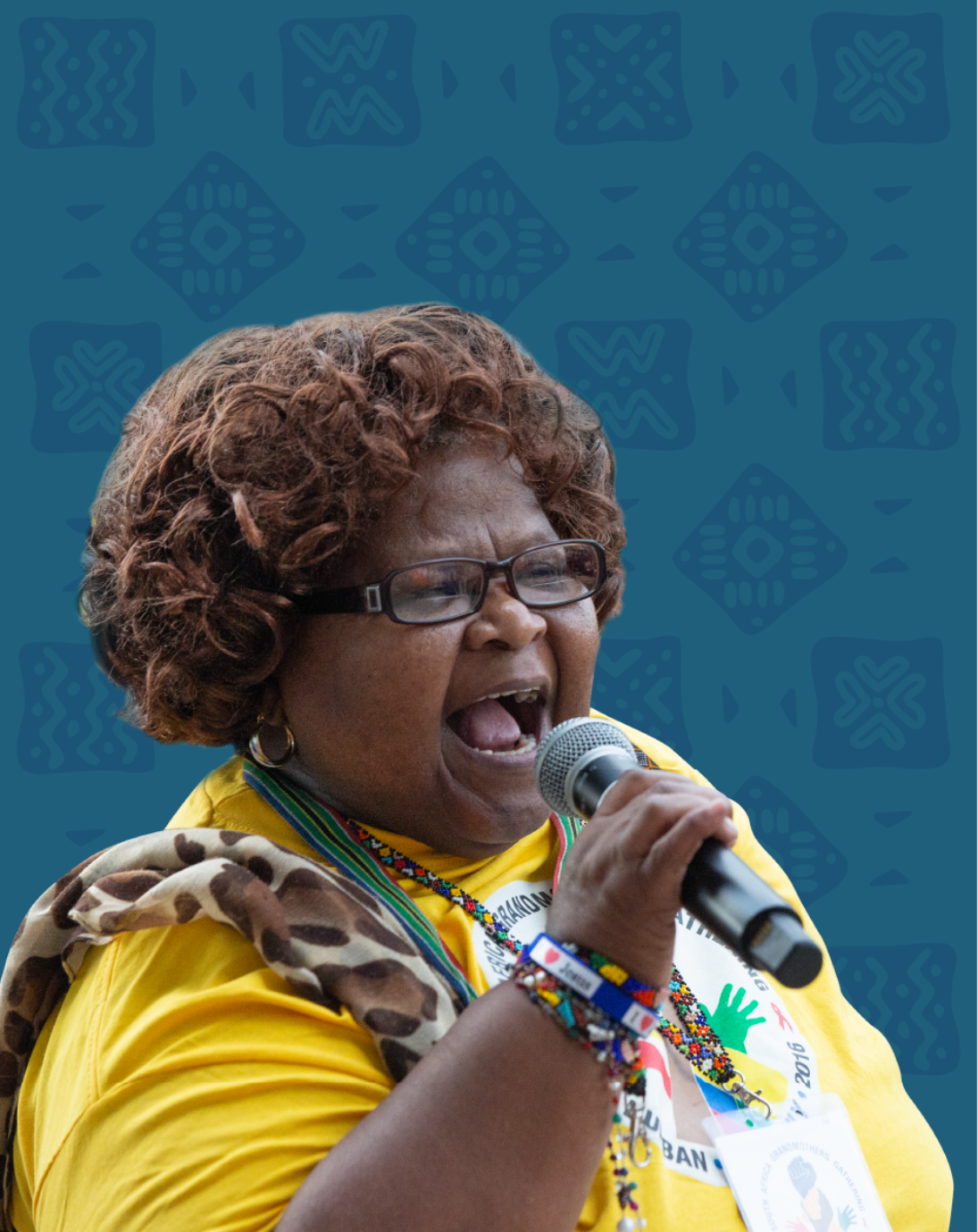
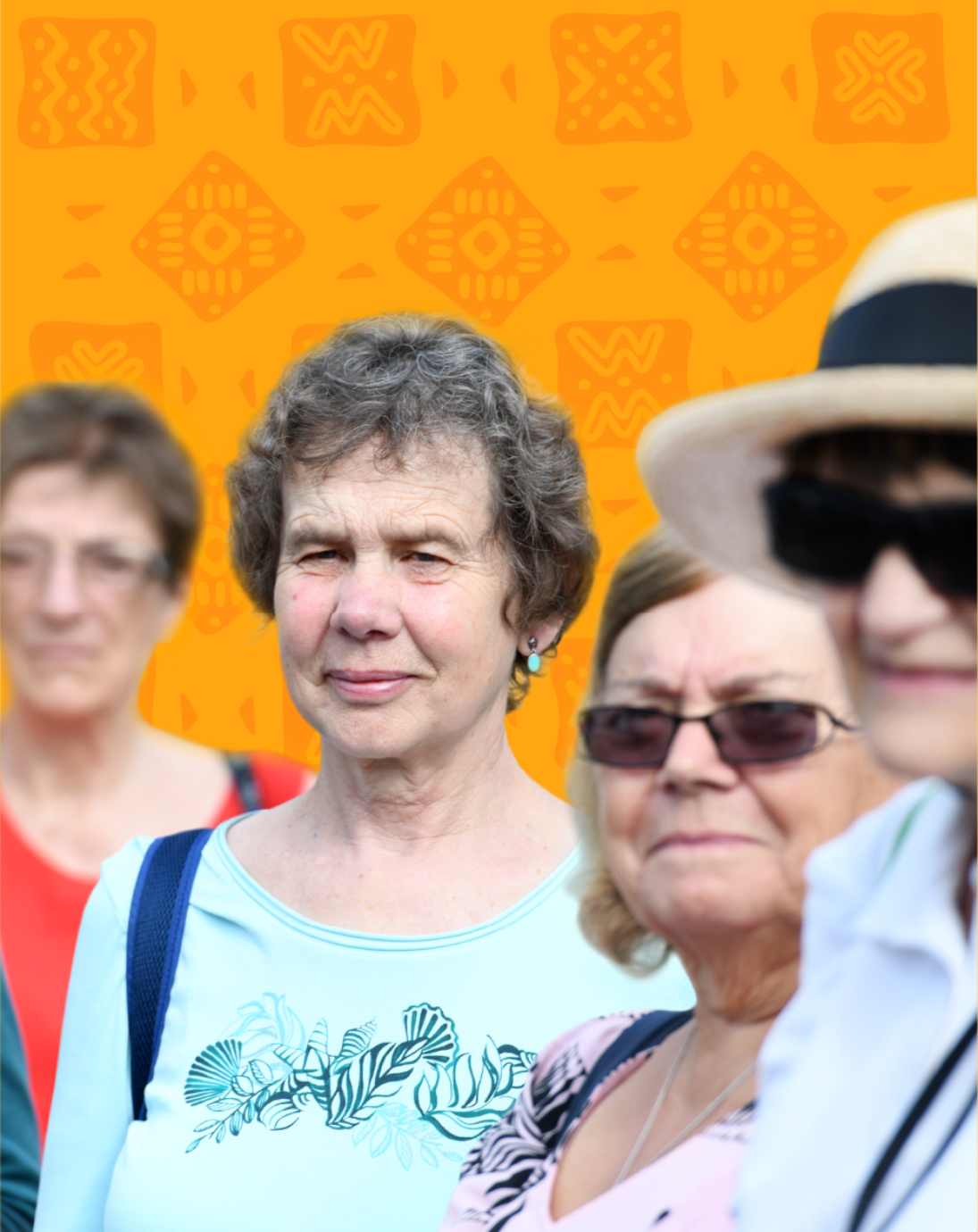
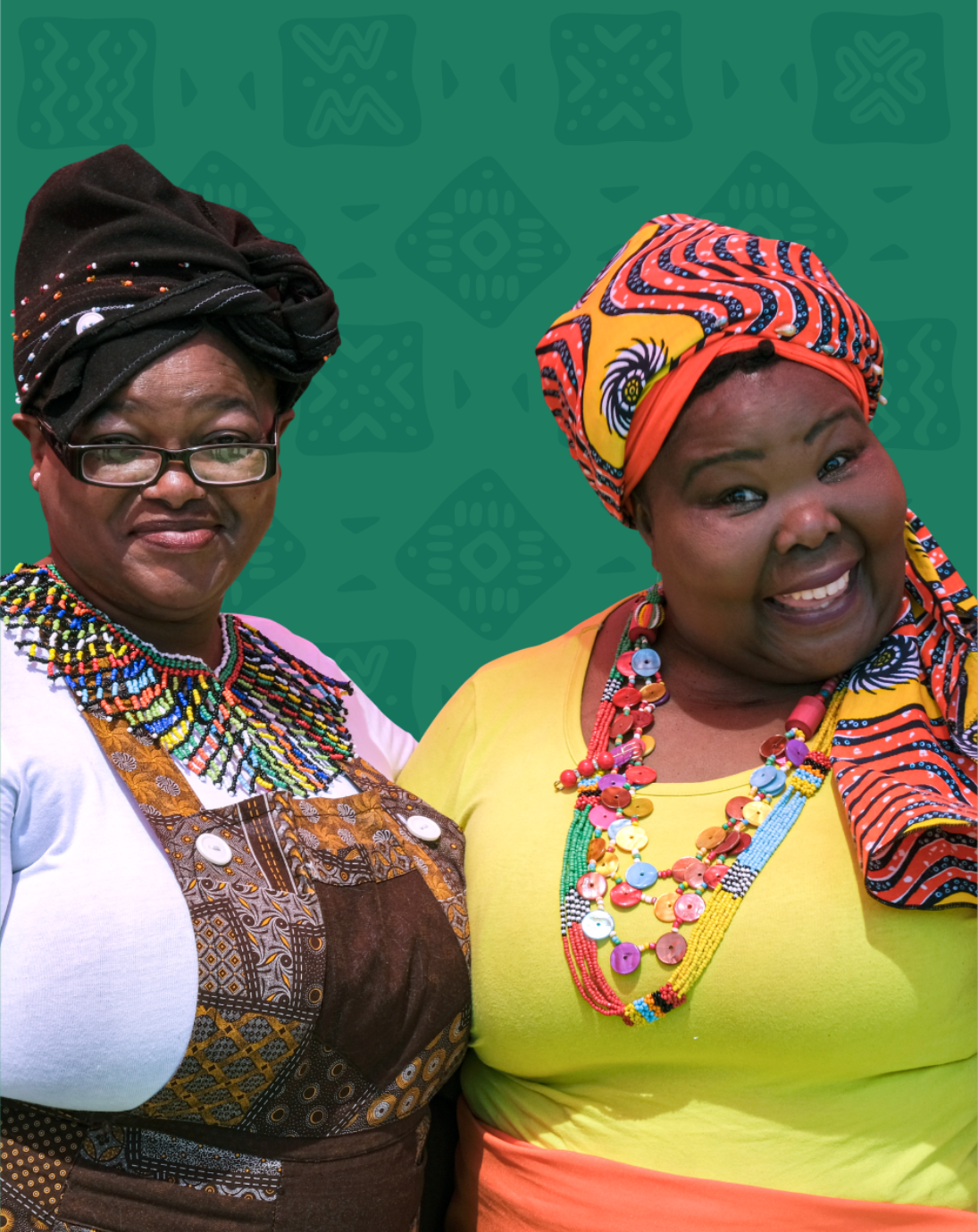
“Working with, and learning from, African women leaders of grassroots organizations at the frontlines of the AIDS pandemic was what lay at the heart of the core values of the SLF.”
In her own words, Ilana Landsberg-Lewis, who co-founded and served for 17 years (2003–2020) as executive director of the SLF, shares her thoughts about the movement: “In 2002, when Stephen was the UN Secretary-General’s Special Envoy for HIV/AIDS in Africa, we sat down as a family and talked about the ravages of AIDS, and the egregiously slow international response. He described the tenacious community-led organizations he witnessed in every country and community, and the legions of women at the heart of the response to AIDS.
As we talked, it became clear that even a modest amount of support could make a huge difference if put directly into the hands of these organizations. Our African advisory committee played critical roles in helping guide us in what kind of support would be truly meaningful, and how to deal with the inequities and power imbalances built into funding from the Global North.
Respecting the expertise and priorities of African women and activist leaders of grassroots organizations at the frontlines of the AIDS pandemic lay at the heart of the core values of the SLF. And more: that supporting our partners’ work at the intersection of HIV and AIDS, gender equality and human rights would necessitate a vigilance around shifting power away from ‘grantmaking’ to those who are turning the tide of AIDS; that community-led organizations must be directly supported with as little bureaucracy as possible; that the priorities, voices and knowledge of grassroots groups and advocates prevail over donor imperatives; and that our partners define meaningful impact, not the SLF nor our donors.
My hope for the women of sub-Saharan Africa is that their own dreams define the way forward. I hope they have support that responds to their own priorities and agendas, and that their advocacy, power, deep knowledge, expression, resilience, and persistence are recognized as an essential and transformative force.
I hope that those of us who work within the grantmaking, philanthropic, and humanitarian sectors find ways to amplify their voices and then step aside and get out of their way! My hope is that we have the humility and respect to listen to their expertise and respond accordingly, so that they can soar and prevail.
Improving the human condition, ending AIDS, achieving gender equality — these are not dreams if the inspiring women activists and leaders of community-led organizations have what they need, are heard, and heeded. I dream of the day donors, international agencies, and those with political power follow their lead.”
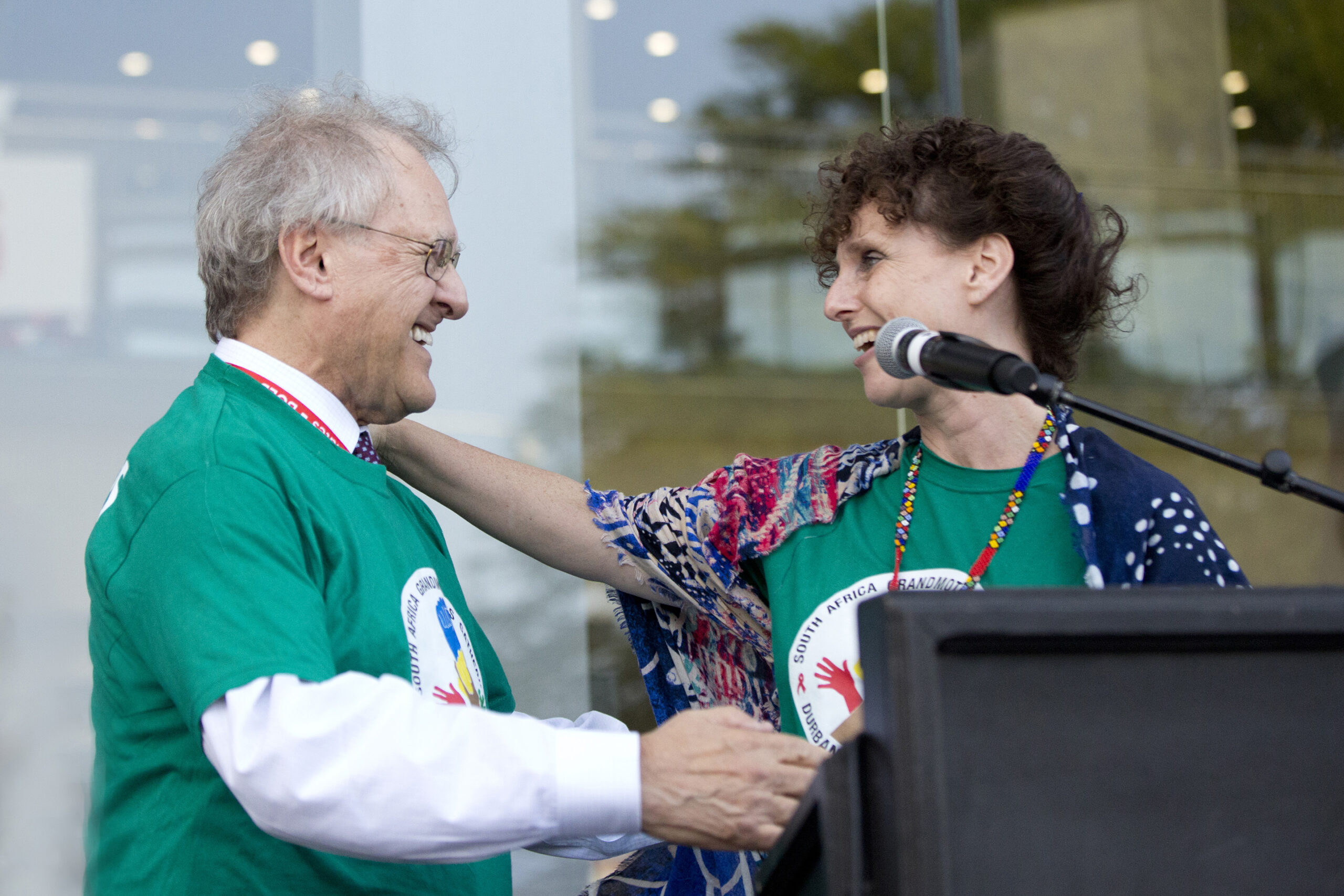
Photo Credit: Alexis MacDonald/SLF
Description: Grandmothers Gathering
Location: South Africa
Make a monthly gift in honour of all of the women like Ilana who inspire you. With continuous and sustainable funding, community leaders can respond quickly when urgent needs arise and invest in long-term solutions that restore well-being, health, and hope.
“We call on you to act with urgency and purpose to support our efforts to secure justice.”
Zodwa Hilda Ndlovu was a towering figure to everyone who knew her, and since her passing in 2020 has remained an inspiration to SLF staff, her community, and AIDS activists around the world. Hailing from Durban, KwaZulu-Natal, South Africa, “Mama Zodwa”, as she was affectionately known, was an extraordinary woman whose activism was born out of the loss of her own children to AIDS, a personal tragedy she poignantly described as “enduring very sad deaths.”
Diagnosed with HIV herself, her thoughts were rarely about her own needs. Instead, she was driven by her desire to save as many families as possible from experiencing the pain that comes from the loss of loved ones stolen by AIDS. In her highly energetic and motivational deputations she reinforced how her own loss drove her to work in her community.
Undaunted, she encouraged herself to speak life into her goal of fighting HIV and AIDS to the end. “No, I don’t want other people’s children to die like my own children,” she said. “This is what I told myself. I am going to work with this animal of HIV. I want to fight it…. I want everybody to know what HIV really is.”
Mama Zodwa’s legacy lives on through the children, grandmothers, and communities she raised up with her vision and spirit. As International Women’s Day approaches, we pause to pay tribute to her amazing legacy as a champion for gender equality and grandmothers’ rights, a mission that is still at the heart of our Grandmothers to Grandmothers Campaign today.
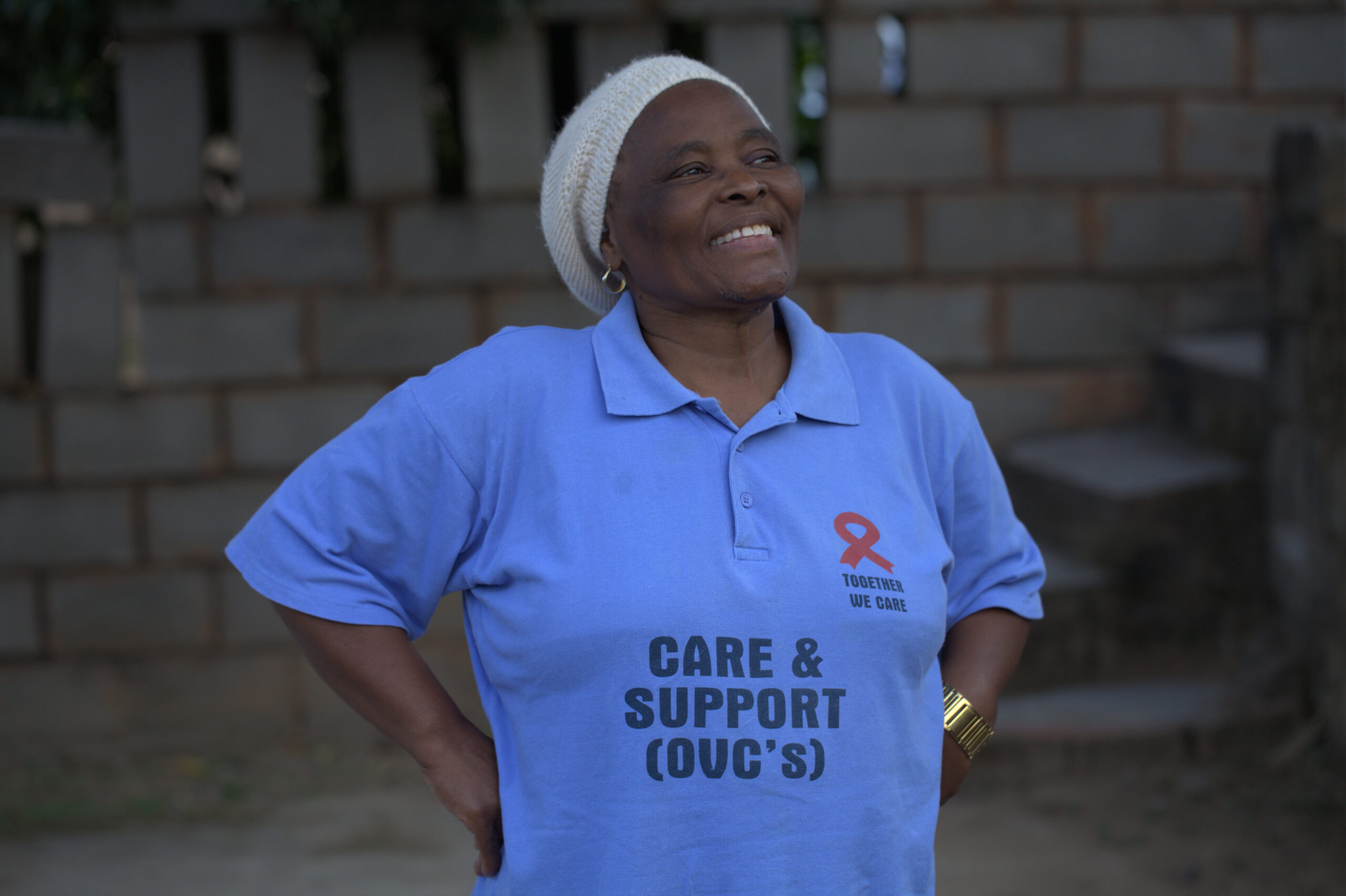
Photo Credit: Alexis MacDonald/SLF
Description: Mama Zodwa Hilda Ndlovu
Location: South Africa
Your contributions today demonstrate your commitment to making a life-saving difference on the ground, just as Mama Zodwa did. You can extend your legacy well into the future by considering a gift in your will to the SLF. It is a powerful statement about your desire to memorialize our shared values and ensure the continuation of this important work for generations to come. Anyone can leave a lasting legacy. To find out more visit Legacy Giving.
“I became their mother, their sister, their friend.”
Siphiwe Hlophe has been a leader her entire life. As founder and director of Swaziland Positive Living (SWAPOL) she opens her heart to women who disclose their positive status in one of Eswatini’s most rural districts, determined to eliminate discrimination and misinformation about the virus in a country where up to one-third of women are living with HIV.
Siphiwe started SWAPOL with a goal of reducing stigma, promoting healthy nutrition, and developing community gardens and other income-generating opportunities. It’s a mission she carries on today. “What we have learned is that by working together, we can achieve almost anything we want,” she says. “This is a very powerful feeling. Through SWAPOL I have discovered new parts of myself, and a whole new life.”
Since 2003, the SLF has been proudly supporting Siphiwe and SWAPOL. Today, our partnership remains as strong as ever — an example of our unwavering commitment to get funds into the hands of those who need them most, through small, committed, community-led organizations.
It’s a priority Siphiwe shares, noting that SWAPOL’s origin story is not unusual. Many organizations were started by women who are HIV positive and propelled into action by their close emotional and personal connection to the issue. “These organizations have provided much of the fabric that keeps communities together,” Siphiwe says.
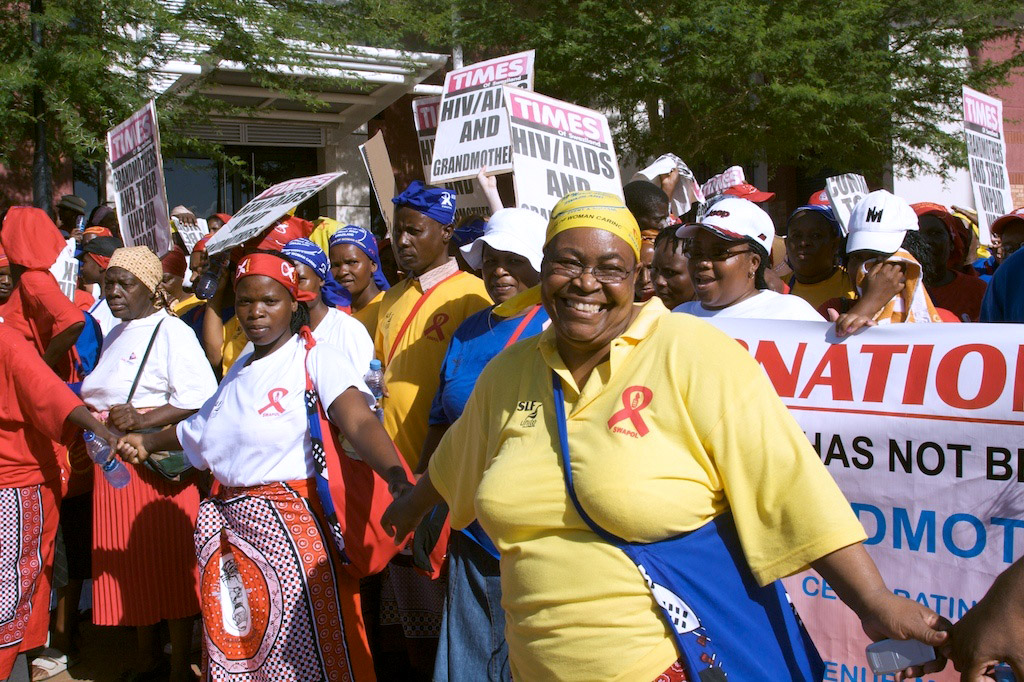
Photo Credit: Liz Marshall
Description: Solidarity March
Location: Eswatini
This International Women’s Day and beyond, we uplift women like Siphiwe who are undeterred in their work to address the multilayered challenges of HIV and AIDS in sub-Saharan Africa.
Do you know a woman who inspires you to do better? Someone who brings hope and changes the lives of others through their service? Is a woman in your life making her mark through her leadership by creating stronger communities and propelling others to greatness? Please consider honouring this remarkable person in your circle by making a donation and sending her a Tribute Card.
“We will not let the AIDS pandemic defeat us nor destroy our communities, but we cannot prevail alone.”
On September 7, 2013, SLF supporters, African partners, and a group of esteemed international activists united to shine a light on the work of courageous grandmothers on the frontlines of the HIV and AIDS pandemic in sub-Saharan Africa. In a Vancouver auditorium, the room was abuzz with anticipation for a hopeful future as a group of phenomenal women and allies gathered for the African Grandmothers Tribunal — a clarion call for grandmothers’ rights to be promoted, protected, and respected.
The tribunal was a formative moment in the Foundation’s history that centred a community-driven, anticolonial approach to addressing the overwhelming demands faced by grandmothers raising their grandchildren orphaned by the AIDS crisis in Africa, and the simultaneous denial of their human rights.
The energy of the event was undeniable as grandmothers from across sub-Saharan Africa presented their moving personal testimonies, and leaders of community-based organizations demonstrated their expertise in addressing the complex social and human rights challenges facing their communities.
Ultimately, the sheer number of voices raised to combat AIDS made the event unforgettable, including the conviction of women like South African activist Zodwa Hilda Ndlovu, Swazi community leader Siphiwe Hlophe, gender equality trailblazer and SLF African advisor Theo Sowa, global health leader Joy Phumaphi, and feminist icon Gloria Steinem.
The event culminated in a powerful call to action to end the prolonged and unbalanced impact of AIDS in sub-Saharan Africa. In their own words, grandmothers shared their aspirations with a statement:
“It is time to recognize that grandmothers at the forefront of the HIV and AIDS crisis must have our human rights respected and protected. We will not let the AIDS pandemic defeat us nor destroy our communities, but we cannot prevail alone. Africa cannot survive without us. We call on you to act with urgency and purpose to support our efforts to secure justice.”
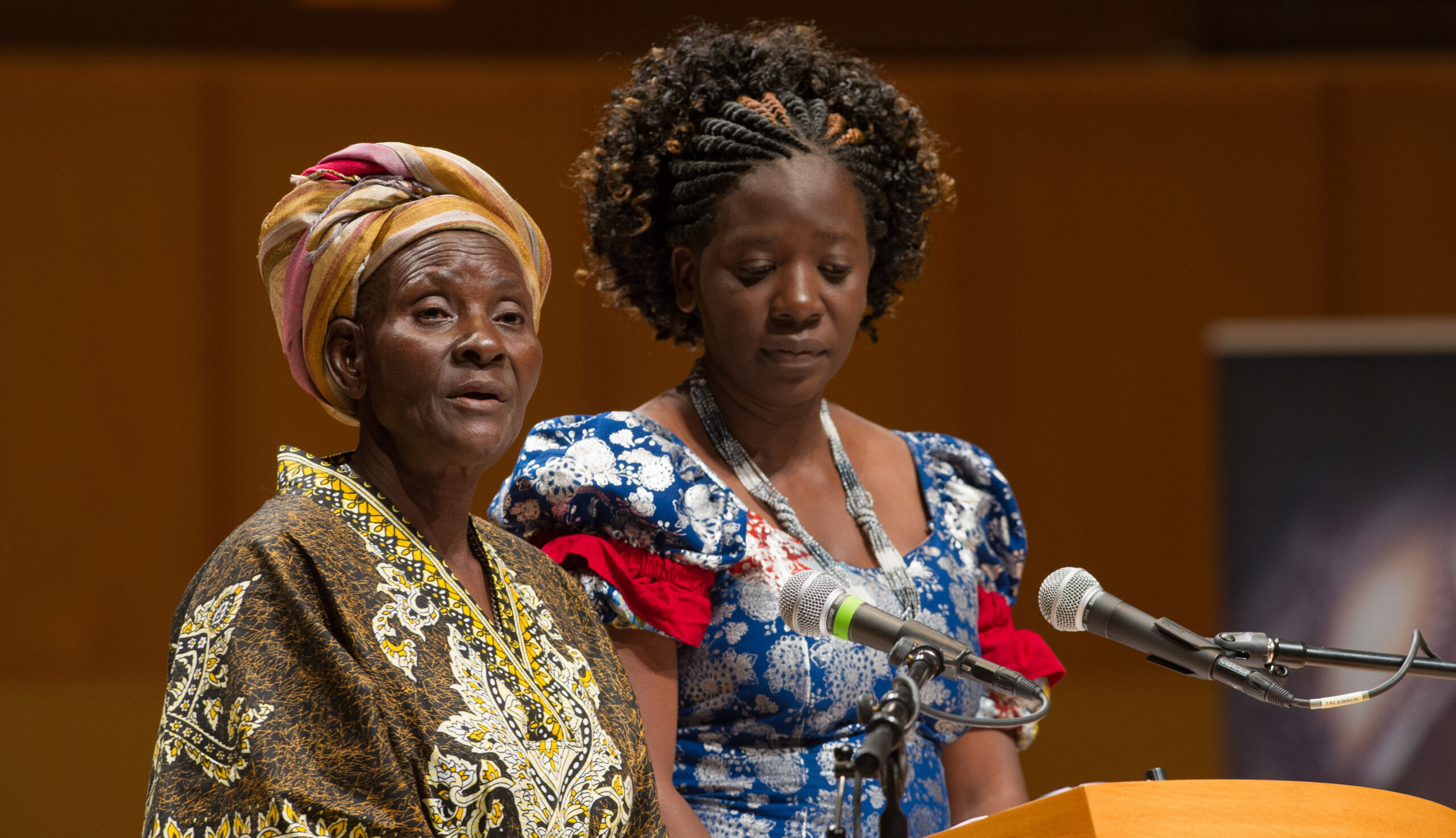
Photo Credit: Archbould Photography
Description: African Grandmothers Tribunal
Location: Canada
We invite you to act in solidarity with grandmothers and community-led organizations and build on the foundation laid that day at the tribunal. A decade later, leaders continue to do the work to preserve power and dignity for all women. Set up an online fundraising page to celebrate a birthday, take on a fitness challenge, or dream up your own event to provide the financial backing they need. It’s easy for you to get started with our Grandmothers to Grandmothers Campaign online fundraising pages.
From a Caravan to a Quilt, Grandmothers are united: Grandmothers stand up! Granddaughters speak out! Communities take action!
At a gathering in Manzini, Swaziland (now Eswatini) in 2010, the grandmothers of sub-Saharan Africa declared that they were no longer content merely to survive. Determined to move beyond their struggle to provide for the children in the care, they launched a campaign to also realize their fundamental human rights and live to see their families and communities thrive.
An ocean away, this fundamental shift in the grandmothers’ movement inspired the AfriGrand Caravan. In the autumn of 2010, on a 43-stop, coast-to-coast tour from St. John’s, Newfoundland, to Victoria, British Columbia, African grandmothers and their teenage granddaughters blazed a trail of hope across Canada that ignited a spark among those united in the fight against AIDS.
The caravan included Ruth Maulana, Rosemary Makandanje, and Maness Kamwaza from Consol Homes Orphan Care in Malawi; Tsabile Victoria Simelane and Thandeka Carol Motsa, from Swaziland Positive Living (SWAPOL) in Eswatini; and Regina Mokgokong and Nonkululeko (Nkulie) Nowathe from Tateni Home Care Nursing Services in South Africa — all of whom had been tragically impacted by HIV and AIDS.
Accompanied by dedicated volunteers, they engaged communities in an intergenerational dialogue about the challenges and hopes of African grandmothers, women, and girls. Canadian grandmothers, young people, and human rights activists enthusiastically welcomed the caravan at each stop, creating vibrant spaces for the African grassroots organizations at the heart of the HIV and AIDS pandemic to sow the seeds for global solidarity.
Today, a new cross-country project is a joyful reverberation of the caravan, and all of the journeys we’ve taken together since: the Grandmothers to Grandmothers Campaign travelling commemorative quilt. The quilt, depicting a female figure as the tree of life, symbolizes the breadth of the Grandmothers to Grandmothers Campaign, created with contributions from grandmothers across Canada, as well as grandmothers and SLF partners throughout sub-Saharan Africa.
Through events like the caravan, the mothers of the movement forged a path for the next generation of activists to take up the mantle of advocacy across borders. Today, the travelling commemorative quilt project is once again sparking important conversations about collaboration and solidarity. Stay tuned for exciting plans to see the completed quilt travel across Canada!
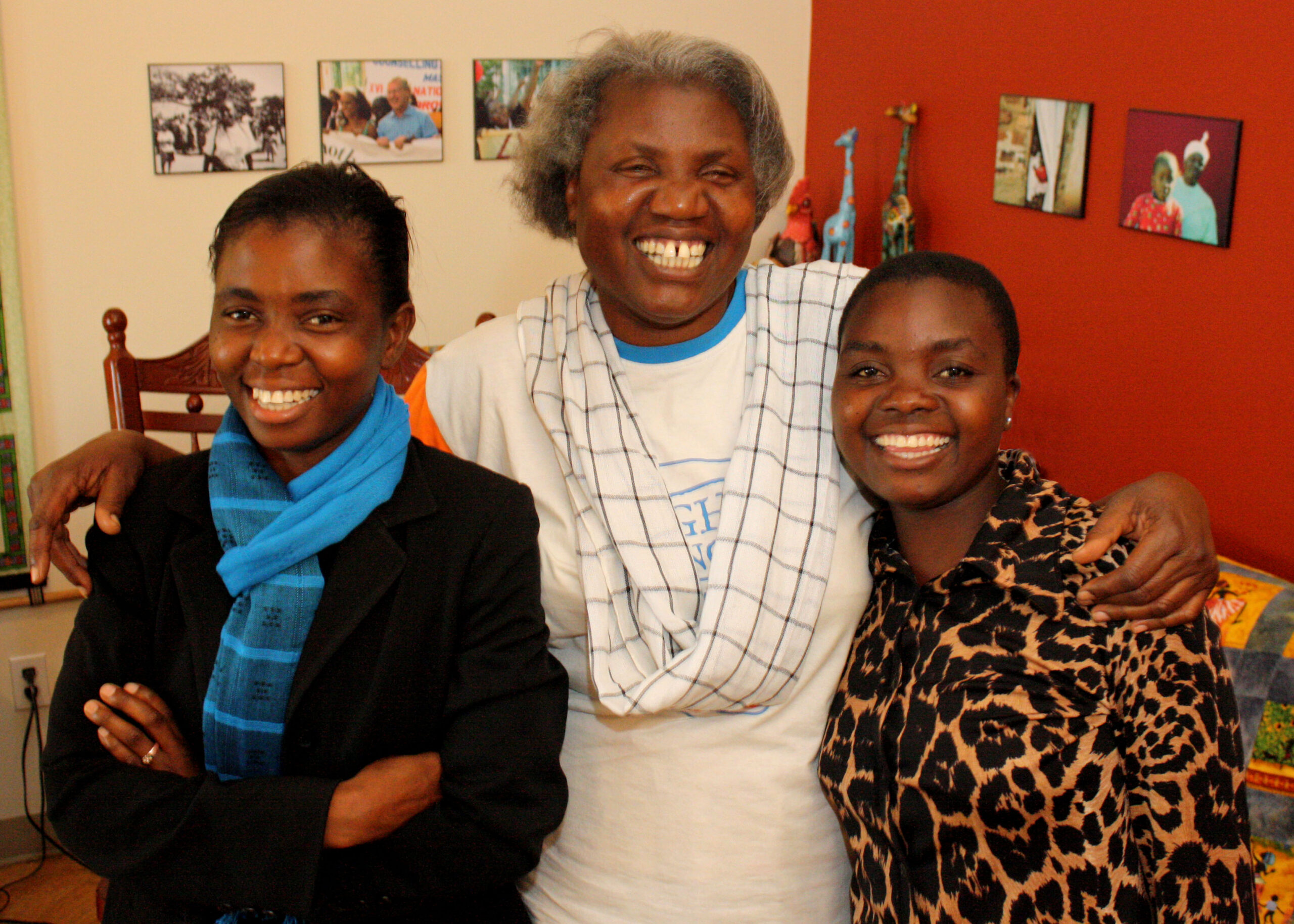
Photo Credit: SLF
Description: Ruth Maulana, Rosemary Makandanje, and Maness Kamwaza from Consol Homes Orphan Care in Malawi
Location: Canada
We celebrate the strength of all the women who pioneered the Grandmothers to Grandmothers Campaign and established its roots as an international solidarity movement. It’s a movement that amplifies African grandmothers’ voices, mobilizes women’s expertise, and restores hope. Join an established Grandmothers to Grandmothers Campaign group, start your own, or make your mark through an individual contribution. We would love to have you join the Grandmothers to Grandmothers Campaign.
“Being truthful is a weapon.”
Ssenfuka Joanita Warry, known affectionately as “Biggie,” is a passionate change maker, human rights defender, and activist known for her work with LGBTIQ communities in Uganda, where she is the executive director of Freedom and Roam Uganda (FARUG). Biggie and her peers work daily in the face of violence and the vitriol spewed by Ugandan politicians and religious leaders who cling to colonial-era anti-LGBTIQ laws and encourage hatred towards lesbian, gay, and transgender communities.
Bravely standing up to the discrimination and stigma, Biggie uses her voice to unapologetically live her truth and advocate for those who feel unable to live openly. “Being truthful is a weapon for the rest of the persons out there who are like me, wondering what is happening to them,” she says. “We’ve all gone through that phase of questioning and then realizing we can’t be someone else.”
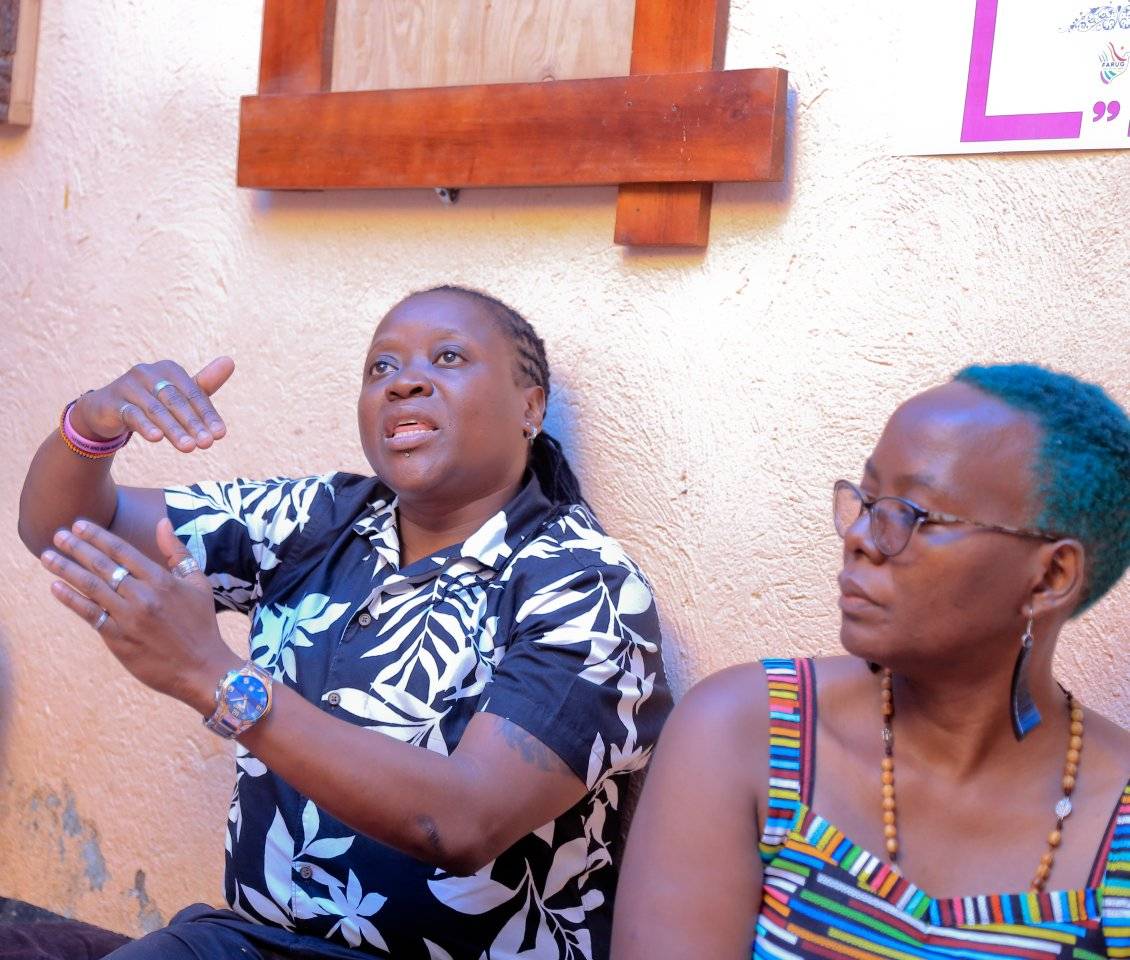
Photo Credit: FARUG
Description: Freedom and Roam Uganda (FARUG)
Location: Uganda
Although she has always lived openly as a lesbian, Biggie acknowledges others can’t. She offers comfort to people kept in the closet by fear of violence or discrimination, often from within their families. “If you think you need protection, it’s ok,” she says. “You have people like us who can speak to you, who you can talk to anytime you want any advice or support. We’re here.”
Champions like Biggie are pillars in communities where discriminatory laws dehumanize and criminalize LGBTIQ people. The SLF celebrates the fearless contributions Biggie makes to her community and the work that she is doing toward tolerance and equality.
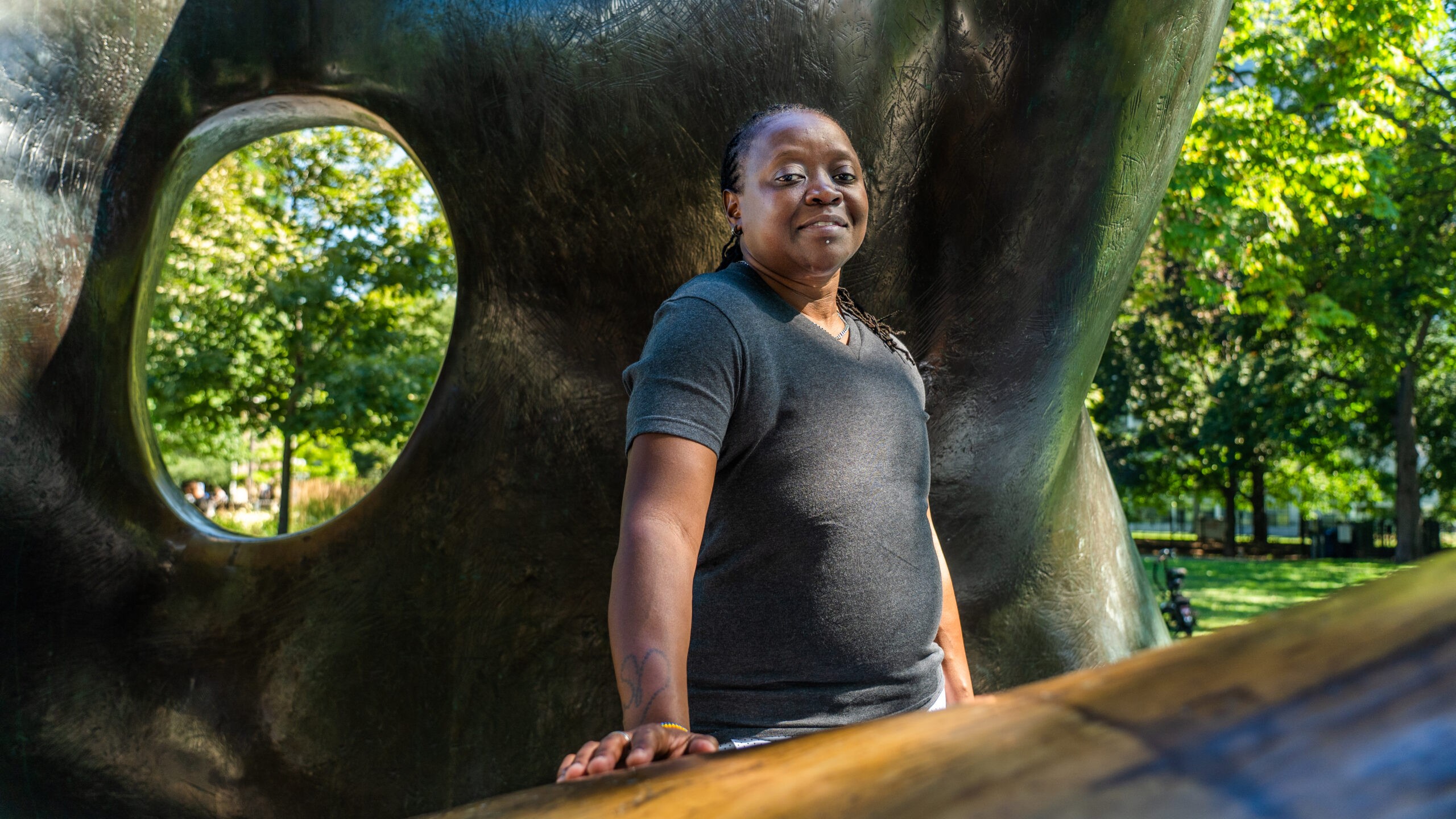
Photo Credit: Andrea Deng
Description: Ssenfuka Joanita Warry, also known as “Biggie”
Location: Canada
Through the Partners in Pride campaign, SLF supporters have provided life-changing resources in the fight against the stigma, discrimination, and violence that threaten LGBTIQ communities across sub-Saharan Africa — funds that literally keep the doors open and lights on for many community-led organizations. To find out more, visit Partners in Pride.
“What can we do?”
It’s March 2006 in Burlington, Ontario, and Stephen Lewis is addressing a group gathered at a Baptist church, delivering one of his many impassioned speeches about the HIV and AIDS pandemic sweeping across sub-Saharan Africa. As he describes grandmothers who have been left to care for a generation of children, women in the audience are moved to act. “What can we do?” they ask. Stephen replies, “start a grandmothers’ group!” So, they do.
The fledging group chooses the name Ubuntu, inspired by a South African concept that we are all tied together through a common humanity. As their name invokes, the group’s members believe it is humanity’s responsibility to care for one another, a sentiment that, 17 years later, keeps them forging ahead. A desire to include women who may not be biological grandmothers also prompts grandwomen for their name.
Burlington Ubuntu Grandwomen had their inaugural meeting the same month Stephen moved them to act, and have gone on to raise more than $173,000 in support of grandmothers in sub-Saharan Africa. Their dedication to those grandmothers keeps them going, as well as their experiences visiting the continent and knowing the impact of their effort.
“The strongest and most compelling factor in our continuing [as a group] is that our efforts have positive results,” they say. “Each victory to conquer the damaging effects of the AIDS pandemic encourages us to continue in the movement. The resilient, determined, courageous African grandmothers, with astounding effort, are demanding what they need not only for surviving but also for thriving.”
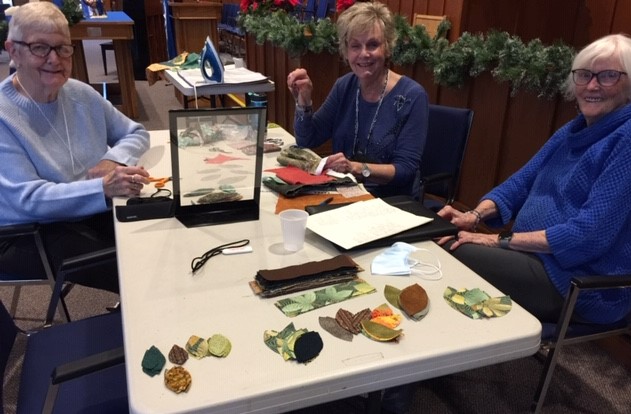
Photo Credit: Burlington Ubuntu Grandwomen
Location: Canada
Make a monthly gift in honour of a woman who inspires you. With continuous and sustainable funding, community leaders can respond quickly when urgent needs arise and invest in long-term solutions that restore well-being, health and hope.
“We are pillars of our communities, and we live our lives as examples. We are caring for so many children, but who is caring for us?”
Mama Darlina Tyawana is no stranger to the struggle for human rights. She is a force of nature: a grandmother, an activist, a lobbyist, and a dynamic public speaker. In 2016, on the doorstep of the International AIDS Conference, speaking to an audience assembled for an African Grandmothers Gathering, she demanded to know, “who is caring for us?”
Like so many other grandmothers in sub-Saharan Africa, Mama Darlina has been engaged in social justice work for decades. The one-time anti-Apartheid activist has been a powerful advocate for the human rights of AIDS-affected grandmothers, and an outspoken AIDS and children’s-rights activist throughout her life. She has spoken passionately of the tremendous energy grandmothers have expended trying to support so many orphaned and vulnerable children – with little assistance beyond local community-led organizations.
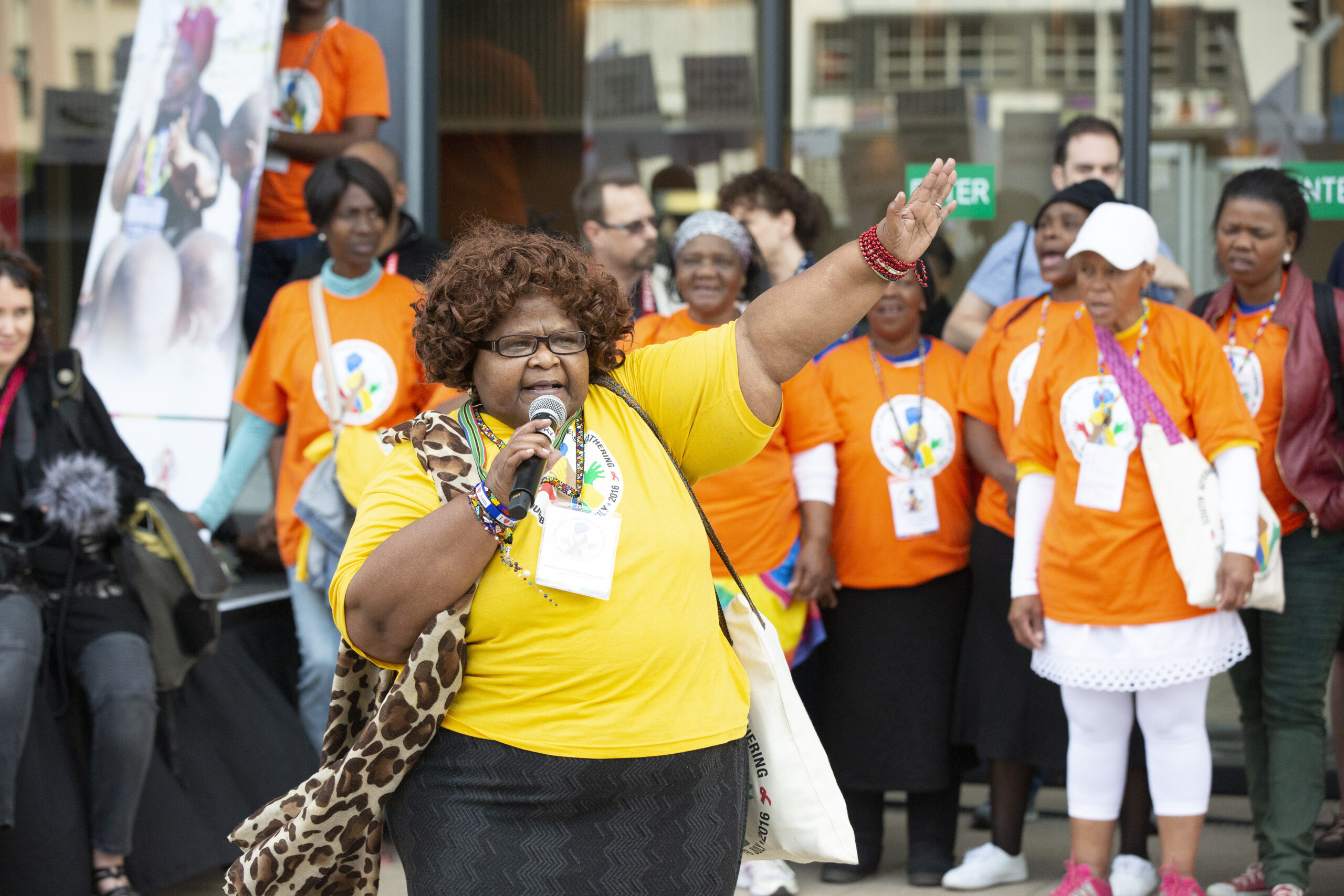
Photo Credit: Alexis MacDonald/SLF
Description: Grandmothers Gathering
Location: South Africa
Her enthusiasm for justice extends to the work of the Canadian grandmother’s movement. “My appreciation for the Canadian Grandmothers is a non-stop appreciation,” she says. “They’ve got hearts of gold. I take them as Gogos [Zulu for grandmother], which means one of us, because they don’t work hard for themselves, they work hard for African grandmothers.”
Women like Darlina are the reason so much progress has been made in HIV and AIDS activism. Her tireless dedication to influence systemic change, raise awareness, and grow the movement is truly inspiring.
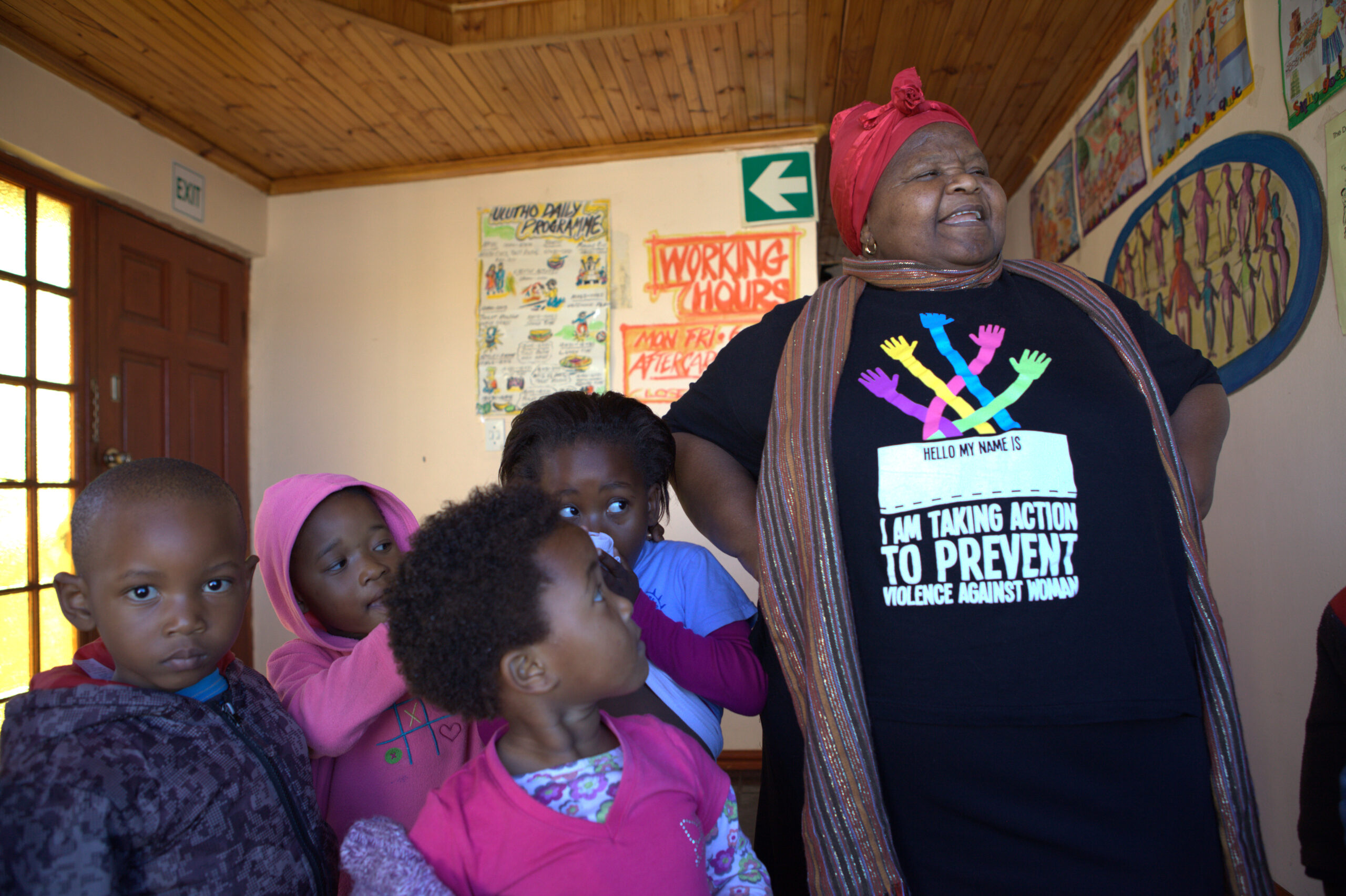
Photo Credit: Alexis MacDonald/SLF
Description: Mama Darlina Tyawana
Location: South Africa
To champion the work of community leaders like Mama Darlina, you can make a donation today. Your support will ensure that women like Darlina, who are best positioned to make concrete, long-lasting change in their communities have access to the resources they need and deserve. To find out more, visit Ways to Give.
“We are proud to be one small cog in a unique and inspiring international solidarity movement based on principles of respect for the dignity and human rights of all.”
In Canada, the Grandmothers to Grandmothers Campaign has become a well-known global solidarity movement of more than 120 groups of grandmothers and grandothers. However, the work extends beyond Canada’s borders to small but mighty groups like 4Gs for Africa in Guildford, U.K., who also raise funds and awareness for SLF partners supporting ageing women and the children in their care.
“We are very aware of the immense challenges faced by [grandmothers in Africa] and hugely impressed by their resilience and determination,” say the 4Gs for Africa, who have raised funds for over 11 years to support the grandmothers’ movement, driven by what they describe as educational and rewarding activism.
“We are proud to be one small cog in a unique and inspiring international solidarity movement based on principles of respect for the dignity and human rights of all,” say the group’s members. Grandmothers to Grandmothers Campaign groups often become support networks for members who, while organizing and mobilizing their communities to support the SLF, are creating bonds with one another in the process, discovered hidden talents and forging valuable friendships.
Hilary Stephenson, a member of the 4Gs for Africa, saw this solidarity reflected internationally when she had the opportunity to attend the 2018 Grandmothers Gathering in Arusha, Tanzania. “You could almost feel the grandmothers sort of drawing strength from one another … generating this sense that together we can overcome this situation,” she says.
As International Women’s Day approaches, we salute Hilary, the 4Gs for Africa, and all of the Grandmothers to Grandmothers Campaign groups across Canada, the U.K., and Australia, who are doing their part to write a new chapter in the fight to end AIDS. These women lead with humility, grace, and kindness, and inspire us every day.
We all have a role to play in this movement led by a global community of women. Find yours at the Stephen Lewis Foundation.
“Together we are stronger.”
In 2001, in townships on the outskirts of Cape Town, South Africa, a small group of grandmothers struggling to cope with the impacts of the HIV pandemic gathered to draw strength and solace from one another. From that group of 10 Gogos (Zulu for grandmother) grew Grandmothers Against Poverty and AIDS, one of the first organizations the SLF supported.
Today, GAPA stands as a commanding example of how many lives the dynamic grandmothers’ movement has touched across the continent. Over two decades it has reached thousands of women, supporting their health, safety, and livelihoods while they work through grief, comfort one another as they care for the sick, and share their hopes and dreams for the children in their care.
“As our motto ‘together we are stronger’ suggests, we believe in collective effort,” said GAPA’s founder, Kathleen Brodrick, reflecting on the organization’s journey at a celebration in 2022.
“There is a way of doing things here and the grandmothers know exactly what that is, and we’ve had a wonderful relationship with them,” she adds.
“Here’s hoping that it will continue for many, many more years.”
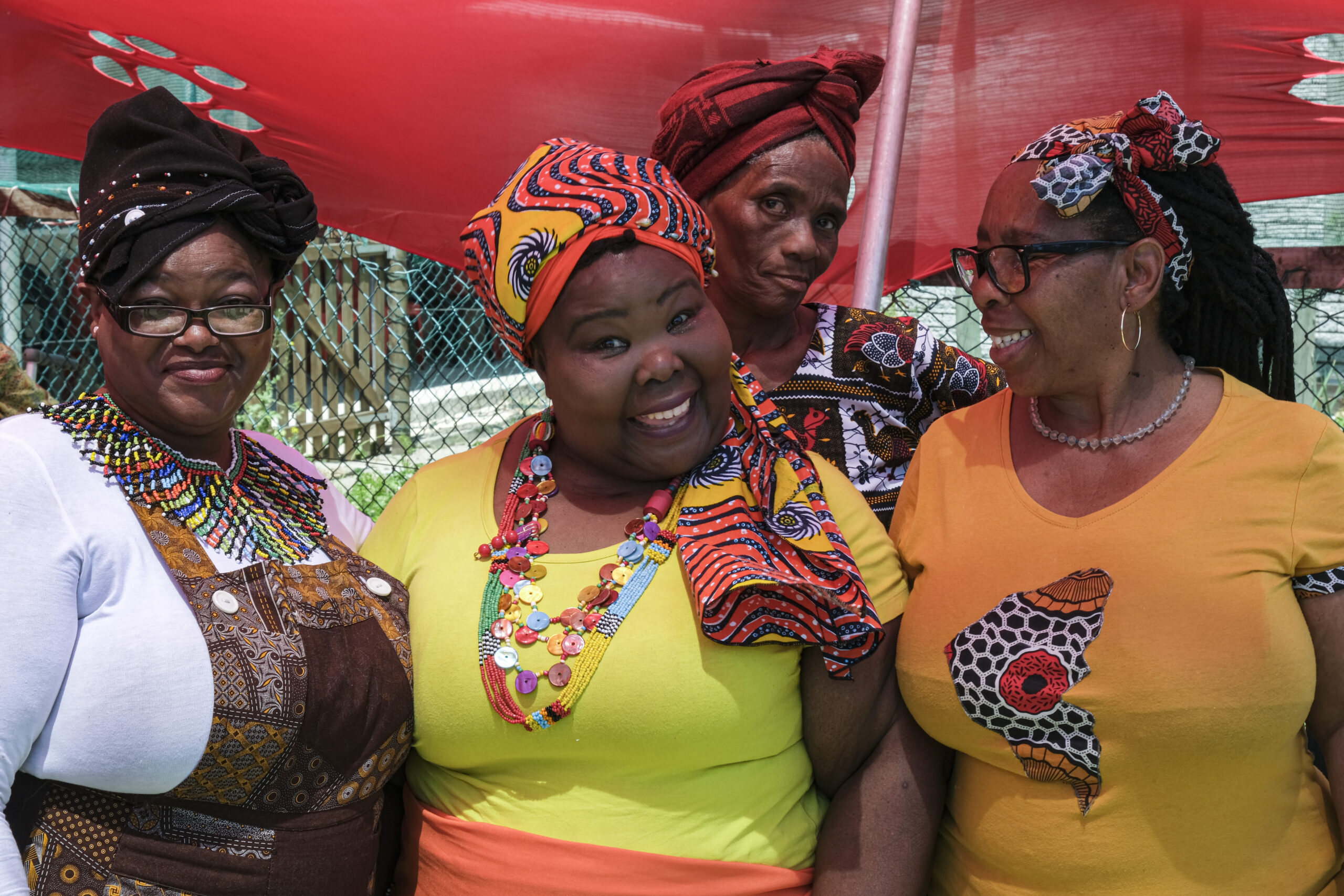
Photo Credit: Eric Miller
Description: Grandmothers Against Poverty and AIDS
Location: South Africa
With your support, we can dismantle inequality and ensure power and dignity for all women.
